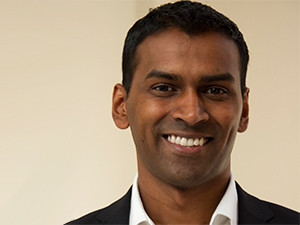
As the world become more intrinsically digital, the way businesses operate has to change.
So said Lee Naik, MD at Accenture Digital, speaking at the ITWeb Digital Economy Summit 2016 in Johannesburg yesterday. He noted the large number of smartphone devices in the market and the Internet of things show that the digital world is no longer a farfetched idea, but a reality.
Naik pointed out that researchers predict by 2020 there will be about of 50 billion devices connected by the Internet and over 212 billion connected sensors.
He believes organisations should be leveraging this interconnectedness to find new ways of doing business.
It is now less about the technology itself, but how companies extract value, Naik explained.
Brett Sinclair, head: digital products at Barclays Africa Group, said when choosing technology, it is no longer about requirements and lists of features, but making sure the latest tools are available in the organisation.
Naik explained that business no longer cares about the technology brands and the types of servers used by IT. What it cares about are the implications of those investments: how they appeal to the shareholder value, revenue and profitability.
"If we don't get that common language right, we (IT) are going to fail to talk to business and what's relevant to them." That's the large part of today's conversation. As the world is becoming intrinsically digital, IT needs to ask itself what role it is playing, he added.
Sinclair said there is a wall between IT and business that is constraining digital progress - with business not understanding tech and vice versa.
He pointed out digital disruption is being driven by companies that are primarily a technology business and are digital savvy, for example Uber and Facebook.
Because of this, business needs to start taking a serious look at what digital is about and what its implications are for their organisation, added Sinclair.
Naik said with technology trends like intelligent automation are no longer in a proof of concept stage but a reality in South Africa, companies need to open up to the power of technology to re-imagine how work takes place.
"Right now technology is an enabler of what we do, but how can we make tech intrinsically part of how we deliver value?"
Companies need to look at the technology trends in the country and globally and how they can leverage them to become more efficient and create value for their customer, said Naik.
He noted businesses should use digital to defend their territory, disrupt and differentiate themselves.
"We must use digital to redefine new terms of competition in the business, differentiate ourselves. Figure out what you need to stay relevant."
Also, organisations should sense and interpret disruption. They need to chat to their peers to find out what is happening around them and what they are doing, said Naik.
As industries converge and change, businesses need to start thinking about their purpose in the marketplace and how they can better serve the customer, he added.
They need to think about digital holistically and how they can stay relevant in a world that is becoming intrinsically digital, said Naik.
Share